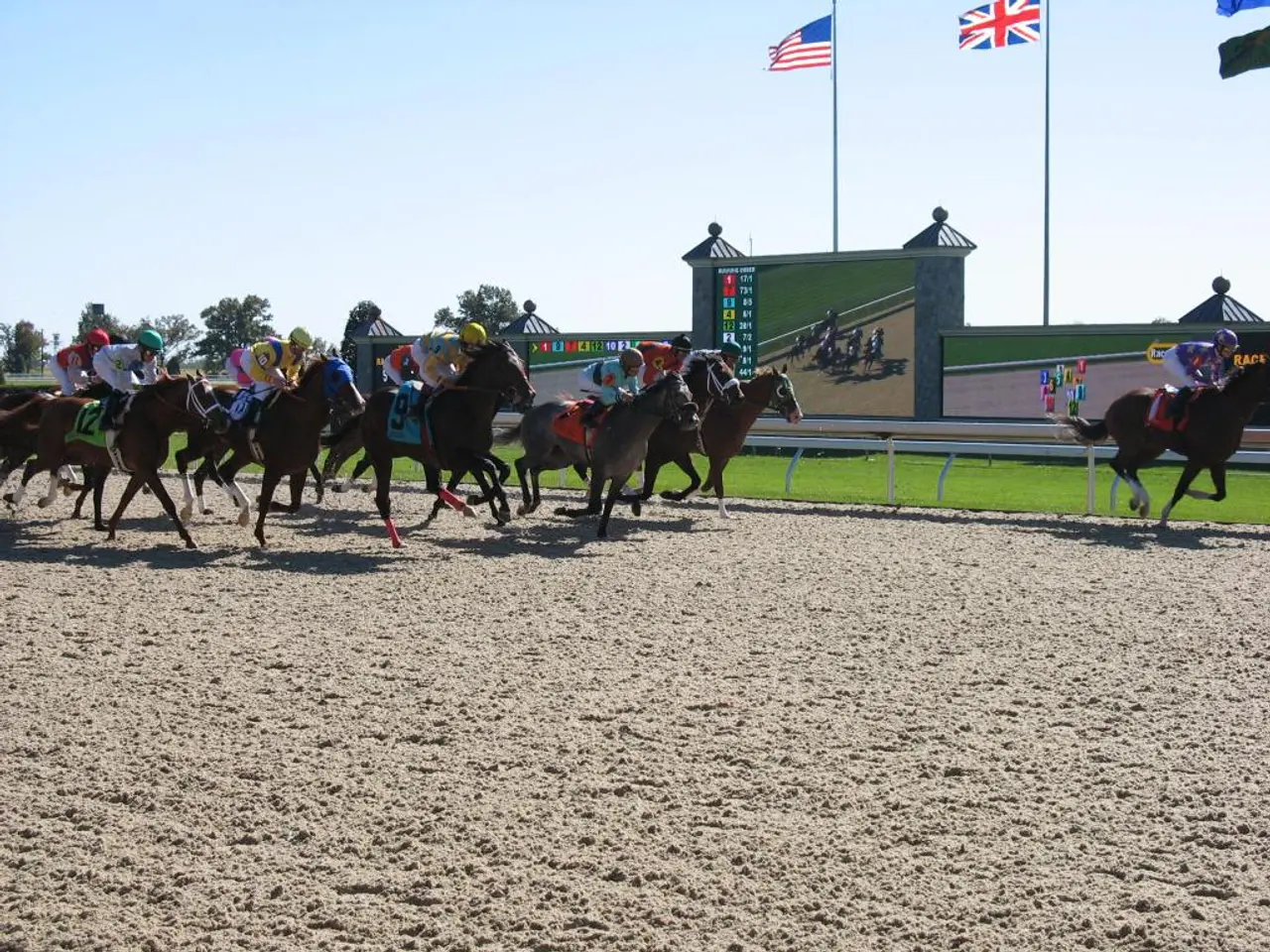British Racing Levy Changes Enacted Today
The British racing industry is facing a significant challenge with the introduction of new online betting levies, which could have a severe impact on funding for grassroots and middle sections, horse welfare, and efforts to close offshore betting loopholes.
The new system, set to harmonize taxes across gambling forms, is based on a percentage of gross profits above a specified threshold. This means that operators will be charged 10% of their profits exceeding £500,000. However, the exact amount of additional income the new system is expected to generate - estimated between £30-£40 million per year - may not be immediately available.
The British Horseracing Authority (BHA) has warned that raising the betting tax from 15% to 21%, or even up to 40%, could lead to an estimated annual loss of £66 million to £160 million in revenue for racing, with potential aggregate damages of up to £330 million over five years. This could threaten racing’s economic fabric beyond just the elite tiers, impacting prize money, sponsorship, and promotional funding crucial for lower levels of the sport.
The existing Levy, funded by bookmakers, contributes notably to equine welfare, integrity, and race prize money. A tax increase would reduce bookmaker profits from racing bets, potentially forcing them to cut back on sponsorship and welfare contributions, which could undermine horse care and associated welfare initiatives.
Moreover, the increased tax burden on racing bets risks backfiring. Anecdotally, betting operators may reduce investment in racing and instead promote lower-overhead online casino games, undermining racing’s traditional link to betting and thus potentially diminishing British racing's financial base without fully solving offshore tax issues.
The new system also applies to all betting operators, whether based in the UK or offshore, and the increase in levies will be directed towards prize money for the grassroots and middle sections of British racing. This is intended to alleviate the financial strain caused by the decreased levies, which have fallen from approximately £100 million in the last decade to less than £50 million.
The Levy Board has had to dip into its reserves due to the decreased levies, and the new system may increase funding for the welfare of horses in British racing. Once the additional income is realized, it will be directed towards British racing's coffers.
In response to these concerns, British racing organizations including the BHA, Jockey Club, and major owners are campaigning vigorously against the tax rise under the banner “Axe The Racing Tax,” asserting that racing’s special status in the betting tax system should be preserved to maintain its unique economic and cultural role.
With the Autumn Budget decisions approaching, the racing sector is mobilizing strongly to resist these changes, aiming to protect the economic and cultural significance of British racing.
References:
- BHA Report on the Impact of Online Betting Levy Reforms
- Jockey Club Response to Online Betting Levy Reforms
- Racing Post: Racing Faces £330m Hit from Online Betting Tax Hike
- The Guardian: Racing Faces Job Cuts and Economic Blow from Online Betting Tax Hike
- The increased levies on sports-betting, particularly in the automotive industry, could potentially harm the transportation sector by reducing sponsorship and welfare contributions, which could in turn adversely affect horse welfare in the racing industry.
- The new online betting levies, set to raise funds for grassroots and middle sections of the racing industry, may impact not only the elite racing tiers but also sports-betting companies, potentially leading these firms to invest more in lower-overhead online casino games, thereby diminishing sports-betting's traditional link to British racing.
- With the advocacy efforts of British racing organizations like the BHA, Jockey Club, and major owners, the racing sector is intensifying its campaign against the proposed tax rise, aiming to preserve the unique economic and cultural role of the racing industry within the broader finance and betting industries.




